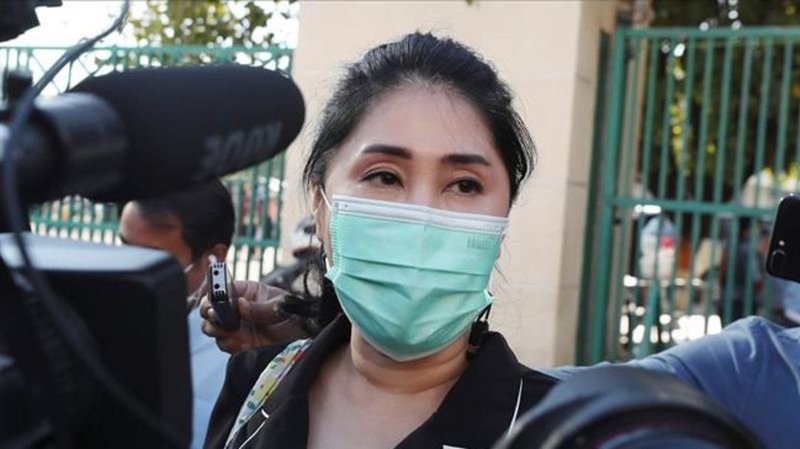
Sister of missing Thai dissident meets with Cambodian judge
PHNOM PENH, Cambodia — The sister of an exiled Thai dissident who was reportedly abducted in Cambodia earlier this year appeared before a judge in Cambodia’s capital on Tuesday to offer evidence that she hopes will lead to an official investigation into her brother’s disappearance.
A group of armed men snatched Wanchalearm Satsaksit, 38, off the street in front of his apartment in Phnom Penh, the capital, in early June before taking him away in a black car, according to human rights groups and fellow activists, citing witness accounts and security video at the building.
Sitanan Satsaksit, the dissident’s older sister, was joined by her lawyers at the office of the investigating judge at the Phnom Penh Municipal Court and said she hoped the meeting would prompt a formal investigation into her brother’s whereabouts. Cambodia has denied that any abduction took place and said no investigation was planned.
“I’m glad that I can come today. I’m confident that the evidence we have is enough to prove that Wanchalearm was here and disappeared here,” Sitanan told media outside the court, speaking in Thai. “We hope the documents we give to Cambodian authorities will be able to help them investigate and solve this case.”


